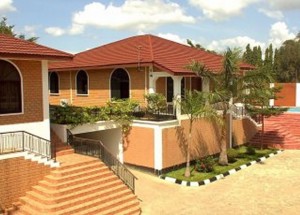‘Dumsor’ said to increase real estate costs in Ghana
 Real estate developers say they absorb costs associated with the load shedding exercise in Ghana, according to industry experts.
Real estate developers say they absorb costs associated with the load shedding exercise in Ghana, according to industry experts.
The added costs, which were not forecasted by many, are proving somewhat overwhelming for these developers.
Mr Kwesi Anderson, Marketing Manager, Whitewall Properties in an interview with the Ghana News Agency, on Friday, said most real estate developers were faced with this dilemma due to the rising need to purchase fuel for generators to ensure maximum productivity.
He said unlike other industries that push their costs to final consumers, real estate developers, especially those in the mid-to-high end range, usually absorb this related cost due to their pre-purchase agreements with clients.
He said with the load shedding exercise in place, it has forced sub-contractors of real estate companies to levy higher than expected charges, that real estate companies were forced to absorb.
“Sub-contractors of real estate companies rely on electricity to produce materials needed to finish building projects, but due to the load shedding exercise; they incur higher costs with the use of electricity generators,” he added.
The Marketing manager said if the load shedding exercise was going to drive cement prices up, invariably it means increased costs to them.
Mr Anderson said some real estate companies incur further costs from the purchase of fuel for power generators, although many companies factor this cost into their service charge, it would not suffice in present conditions.
However, he said that his company, as part of an agreement with tenants, purchased fuel with the cost passed onto them.
“We are forced to buy fuel to power our generators for tenants’ use and this costs us between GH₵2,000 and GH₵4,000 at least every two days,” he said
He said the unfortunate part was that tenants were made to pay between GH₵800 and GH₵1,000 each as contribution towards this.
Mr Anderson said the General Electric deal was a step in the right direction for Ghana, ultimately, it would be adding on to the country’s generation capacity, which would help the industry.
Mrs Akua Nyame-Mensah, the Managing Director of Lamudi Ghana, said there was a need for more sustainable buildings to improve energy efficiency.
“We need to think about how we can design our buildings to consume less energy, by incorporating natural light or create natural air vents,” she said.
She said alternative forms of energy could also be installed to heat water, run a water pump or lights, adding that, everyone implementing these small initiatives would ultimately lead to less pressure on the national grid.
Source: GNA
